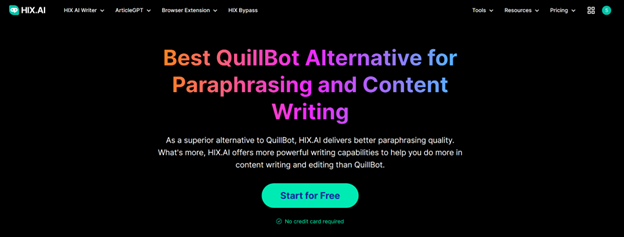Large corporations often have silos. Since each business unit works independently, transferring information between departments is challenging. Silos often get so intense; they can halt company growth. For smaller startups, they can prove to be fatal.
Investing in an ERP solution can eliminate silos and integrate critical business processes, such as finance, accounting, human resources, procurement, and inventory management. This system can provide a centralized view of a company’s operations for better decision-making and efficiency. Additionally, it can automate and streamline many manual processes, reducing the potential for errors and increasing accuracy. Because of these benefits, 64 percent of companies plan to implement an ERP system within the next 3 years.
If you have decided to break free from silos and improve business processes, great! 2023 is the right time to invest in a cloud-based ERP. Let’s explore what are the best options out there:
Table of Contents
1. Oracle Cloud ERP
Oracle Cloud ERP is a comprehensive solution that offers a wide range of modules to meet the needs of different industries. It includes modules for financials, procurement, project management, and supply chain management. Additionally, Oracle Cloud ERP offers advanced analytics and reporting capabilities. These features can help organizations gain real-time insights into their business operations.
Pros
- Scalability: Oracle Cloud ERP allows businesses to scale their operations as they grow.
- Improved Collaboration: The software allows employees across different departments to share data and collaborate more effectively.
- Reduced Costs: Cloud-based ERP systems can save businesses money on IT costs by eliminating the need for on-premise infrastructure.
Cons
- Limited Customization: Some businesses may find the software’s customization options limited, making it difficult to fit their specific needs.
- High cost: Subscription-based pricing model of Oracle Cloud ERP can be expensive for small businesses and may require a significant upfront investment.
2. Microsoft Dynamics 365
Dynamics 365 Finance and Operations is a cloud-based ERP solution that offers financials, supply chain management, and customer relationship management modules. It also includes advanced analytics and reporting capabilities. Additionally, the solution is designed to work seamlessly with other Microsoft products, such as Office 365 and Power BI.
Pros
- Integration: Dynamics 365 can integrate with other Microsoft products, such as Office 365 and Power BI.
- Scalability: You can scale the software to meet the changing needs of a business.
- Customization: Dynamics 365 offers extensive customization options, allowing businesses to tailor the software to their specific needs.
- Mobile access: Dynamics 365 can be accessed from a mobile device for greater flexibility and convenience.
Cons
- Complexity: The software can be complex, especially for businesses unfamiliar with Microsoft products.
- Dependence on Microsoft: As Dynamics 365 is a Microsoft product, businesses may become dependent on Microsoft for support and updates
3. SAP S/4HANA Cloud
SAP S/4HANA Cloud is a cloud-based ERP solution that provides a range of modules for financials, logistics, and human resources. It also includes advanced analytics and reporting capabilities to help organizations make better business decisions. Additionally, the solution is designed to work seamlessly with other SAP products, such as SAP Ariba and SAP SuccessFactors.
Pros
- Scalability: S/4HANA Cloud can be easily scaled up or down to meet the changing needs of a business.
- Faster deployment: As it is cloud-based, deployment is generally quicker than on-premises solutions.
- Automated updates: S/4HANA Cloud is updated automatically, ensuring that businesses always use the latest software version.
Cons
- Limited control: As the software is hosted on the cloud, businesses have less control over their data and how it is managed.
- Limited integration: Depending on the version, there may be limited integration options with other systems.
4. Infor CloudSuite
Infor CloudSuite is built with Amazon Web Services (AWS) infrastructure to provide a central repository for all your information and improve the flow of data across the organization. In addition, this solution is designed to work seamlessly with other Infor products, such as Infor M3 and Infor Lawson. Garter has recognized Infor CloudSuite as the leader for product-centric enterprises.
Pros
- Industry-specific: Infor CloudSuite is designed for specific industries, which can provide businesses with more relevant functionality and better performance.
- Omni-Channel Campaign Management: This feature allows users to create and execute a comprehensive customer strategy using advanced features and monitor campaign results simultaneously.
- Automated updates: This ERP has automatic upgrades every 30 days, lifting the burden from the IT teams.
Cons
- Dependence on Infor: As Infor CloudSuite is an Infor product, businesses may depend on Infor for support and updates.
- Limited to specific industries: Infor CloudSuite is designed for specific industries, which can limit its use for businesses that do not fall into those industries.
5. NetSuite
NetSuite is a unified business management suite encompassing modules of eCommerce, CRM, ERP, and more. This ERP also supports omnichannel retail activities to develop and maintain customer relationships, manage end-to-end manufacturing processes and offer Professional Services Automation (PSA).
Pros
- Real-time data visibility: Users can get a 360-degree view of customers, better understand their behavior and make informed decisions.
- Industry-specific features: The solution features additional modules created according to industry-specific demands to help you run your business smoothly.
- Global business management: With the NetSuite OneWorld feature, you can manage and run your business globally.
Cons
- Cost: NetSuite can be expensive, especially for businesses that require extensive customization or multiple modules.
- Dependence on Oracle: As NetSuite is an Oracle product, businesses may become dependent on Oracle for support and updates.
Conclusion
All cloud ERPs listed above are top-rated in the industry and come with great features. Choose the solution that can adjust to your business model smoothly and encompasses your desired features.



![Best Free Mobile Remote Desktop App [iOS & Android] Free Mobile Remote Desktop App](https://techniciansnow.com/wp-content/uploads/2024/01/Free-Mobile-Remote-Desktop-App.jpg)




